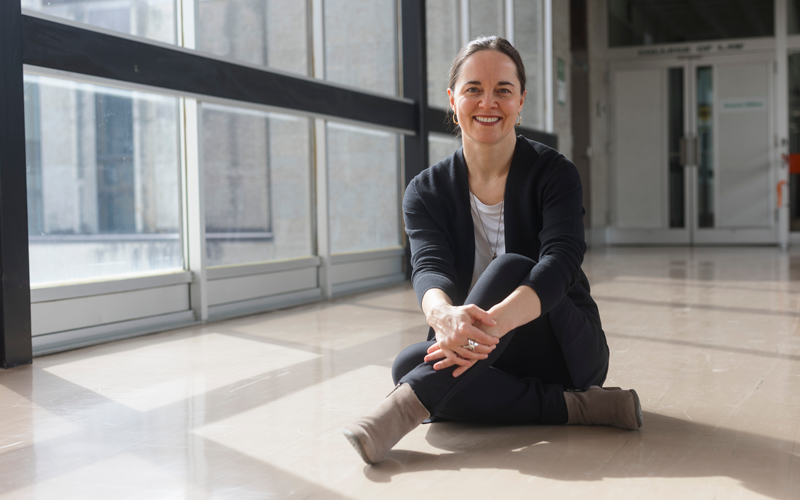
Research aims to understand how policies and decision-making processes impact organizations and workers
Professor Dionne Pohler explains how different governance models can affect decision-making and why that matters for building inclusive communities and organizations for more effective problem solving.
What approaches to decision-making lead to policies that will generate positive impacts? This is the burning question driving Dr. Dionne Pohler’s research. She is interested in understanding how people solve problems and why some government and employer policies are effective, while others are not. Dionne shares insights into these questions in a discussion about her research.
Describe your research and why it matters.
Dionne: I explore how different ideas we have about everything from work, class and gender to COVID-19 impact design and implementation of government and employer policies as they relate to the workplace. I also investigate the outcomes of policies – the unintended negative consequences on people who have little voice or power over their implementation. I’m interested in understanding how different types of governance – such as the co-operative model – can more broadly distribute decision-making power, and why that matters for building inclusive communities and organizations that can more effectively solve problems we care about. People should care about who gets to decide what problems matter, as well as what solutions are implemented to solve these problems.
What do you find most exciting about labour relations and co-operative research?
Dionne: Both areas of research recognize that people understand their own problems and have good ideas about how to solve them. Experts and researchers need to adopt a supporting role in helping people solve their own problems. When I take a backstage role, I learn so much from listening to people describe their own problems and ideas about solutions. Context also matters, and you never face the exact same problem twice. It never gets boring.
How have organizations been impacted during the COVID-19 pandemic and how have they responded or adapted?
Dionne: I’ve been exploring this issue since March 2020 with two PhD students. Some organizations have really thrived during the pandemic, while others failed. Most are just muddling through. Some organizations implemented problematic policies, while others did a better job. There will be major adjustments to the economy post-pandemic, and this will have different impacts on different organizations and workers, depending on their industry and ability to adapt to the challenges posed by the virus and lockdowns.
How can business leaders better adapt to shifts in the labour market?
Dionne: Business leaders can learn from what is happening in countries that have moved more quickly past the pandemic than we have in Canada. There may be a period of very rapid churn in labour markets following the crisis that will be difficult to manage because organizational leaders are burnt out from the constant change over the past two years. Being prepared for what will inevitably be more change and preserving energy to continue to implement strategic priorities and address workers’ needs while fighting recurring waves of the virus will be difficult, but necessary so business can continue to attract and retain workers.
How can academic research help businesses make better decisions?
Dionne: This is a weird statement coming from an academic researcher, but I’m not sure research can help businesses make better decisions. Research explores and explains the past. Business leaders often need to make predictions about what will happen in the future. To the extent that the past is a good predictor of the future, as it might be when environments are similar and stable, models based on past research might be beneficial. There are generalizable principles, however, even in uncertain situations. For instance, balancing efficiency, equity, and voice objectives is always the most effective way to craft solutions to organizational problems. And striking a balance always requires seeking input from many different people who come from different perspectives.
What is the most important aspect of ensuring equity in the labour market post-COVID?
Dionne: My research with Kourtney Koebel showed that while many of the lowest-income workers lost their jobs, other low-income workers worked even more hours early in the pandemic. And higher-income workers were more likely to be able to work from home. Making sure that low-income workers do not fall through the cracks of government and organizational policies, and that their labour is adequately valued, is critical to ensuring equity in the labour market post-COVID.
What do you want Edwards’ students to understand about labour relations by the time they graduate?
Dionne: Labour relations is about fixing problems. It isn’t about crafting perfect strategies, communications, or platitudes. It is about managers, unions, and workers muddling through the workplace every day together, crafting solutions that probably make no one happy, but that everyone can live with.
